Your Body Knows Before Your Mind Does
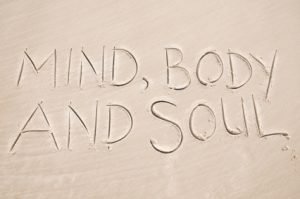 If you have a relationship with your body, you probably know things that other people don’t know. That’s because your body knows before your mind does. There are often visual cues, tell-tale signs people see, but the processing in the brain is slow. Even scents can create quick emotional responses. The nervous system, your somatic body, doesn’t think. It simply sends signals to react. Paying attention to body cues that range from hair raising on the arms or a feeling like a punch in the gut to feeling good when talking about taking a new job all are giving you important cues.
If you have a relationship with your body, you probably know things that other people don’t know. That’s because your body knows before your mind does. There are often visual cues, tell-tale signs people see, but the processing in the brain is slow. Even scents can create quick emotional responses. The nervous system, your somatic body, doesn’t think. It simply sends signals to react. Paying attention to body cues that range from hair raising on the arms or a feeling like a punch in the gut to feeling good when talking about taking a new job all are giving you important cues.
Anyone that exercises has heard a trainer say, “listen to your body.”
One sure way to get injured is to ignore the messages from your body that are screaming at you to stop. They come in the form of intense pain and can be good indicators that you’re working out too hard, doing something wrong or or attempting something it’s not ready to perform. While your mind may try to dismiss it, you later realize you should have listened, as you’re waiting for your injuries to heal.
Can you avoid other dangers, not at the gym?
I had a client who was very aware of her body signals, although she just called it her extra sense. She made in-home appointments and when knocking on the door of one of those homes, heard a voice in the background, saying “Come in, it’s unlocked.” As she reached for the door, she felt her tell-tale sign that something was wrong, It felt like a hard punch to the stomach. The voice kept talking from the other room, but she remained by the door, luckily. In the middle of the conversation the person attached to the voice appeared. It was a large grown man, completely naked. She was out of the door and into her car in seconds. Was she in danger? Her body thought so and it was probably right. Everyone has had those instances where the body feels the danger before it registers in the brain.
Learn to get in touch with the messages your body sends.
Your body and your senses have a lot to offer. They can provide those primitive messages that kept prehistoric man safe. You can feel someone watching you or smell the scent of anger. These senses enter the nervous system and can trigger a response. Your body can instantly sense these chemo-signals. Signals from body language are often overlooked by the mind, but not by the body. Most of all, your body is constantly sending you signals to help you live a happier life, You can get more in touch with your body in a number of ways. Try mindfulness or meditation.
- Yoga and dance are also good to get you more in touch with your body. Don’t do formal dancing, but more primal, to fast music and just appreciate how good it feels for each muscle to move. You’re learning to understand body speak.
- Do deep breathing exercises or take a walk in nature to start getting in touch with your body speak.
- When you workout, keep your mind focused on how each movement feels, rather than planning the dinner menu. You can use your workout time to get more in touch with the messages from the body.

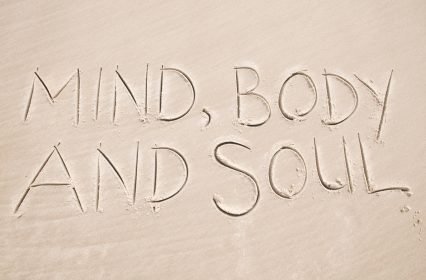

 If you’ve read much on health issues, you’ll notice the focus has changed. Now longevity has overtaken the “Anti-Aging” mantra for most people. Living longer means doing everything necessary for a healthier life. It means eating healthy, getting adequate exercise and sleep and avoid negative behavior such as drinking too much, smoking, using illegal drugs and stress-giving behavior.
If you’ve read much on health issues, you’ll notice the focus has changed. Now longevity has overtaken the “Anti-Aging” mantra for most people. Living longer means doing everything necessary for a healthier life. It means eating healthy, getting adequate exercise and sleep and avoid negative behavior such as drinking too much, smoking, using illegal drugs and stress-giving behavior.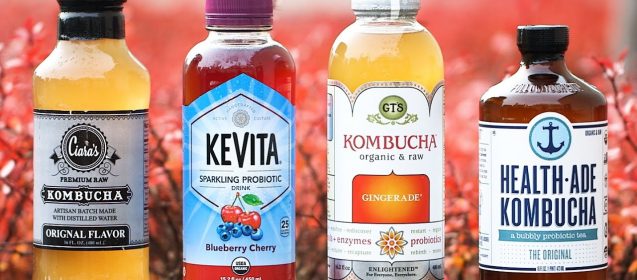
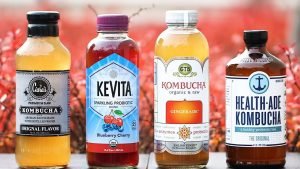 Kombucha has been around for a long time, but it’s never been so prominent in Western civilization as it is recently. It’s a probiotic drink that is made from a sweet green and black tea that’s laced with “a symbiotic colony of bacteria and yeast,” often referred to as SCOBY. Let’s say, it’s not pretty when it brews. It looks a bit like a flat mushroom pancake floating on top and smells a bit vinegary when you drink it. In fact, I’ve found a few Kombucha looking leftovers in the recesses of my refrigerator when I’ve given it a thorough cleaning. The SCOBY ferments the tea and the final product is Kombucha.
Kombucha has been around for a long time, but it’s never been so prominent in Western civilization as it is recently. It’s a probiotic drink that is made from a sweet green and black tea that’s laced with “a symbiotic colony of bacteria and yeast,” often referred to as SCOBY. Let’s say, it’s not pretty when it brews. It looks a bit like a flat mushroom pancake floating on top and smells a bit vinegary when you drink it. In fact, I’ve found a few Kombucha looking leftovers in the recesses of my refrigerator when I’ve given it a thorough cleaning. The SCOBY ferments the tea and the final product is Kombucha.
 One of the amazing things about studies, is that they often come up with contradictory results. While one study found that people who used supplements were often healthier, other studies show they have no effect. What’s the reason for that contradiction? A third study showed that people who used supplements also exercised regularly, ate healthy meals and did other things, like not smoking or drinking in moderation, that kept them healthier. There is logic to the reason that supplements are not the answer. It comes from the chemical interactions that occur when you eat whole foods and the way the supplements were made.
One of the amazing things about studies, is that they often come up with contradictory results. While one study found that people who used supplements were often healthier, other studies show they have no effect. What’s the reason for that contradiction? A third study showed that people who used supplements also exercised regularly, ate healthy meals and did other things, like not smoking or drinking in moderation, that kept them healthier. There is logic to the reason that supplements are not the answer. It comes from the chemical interactions that occur when you eat whole foods and the way the supplements were made.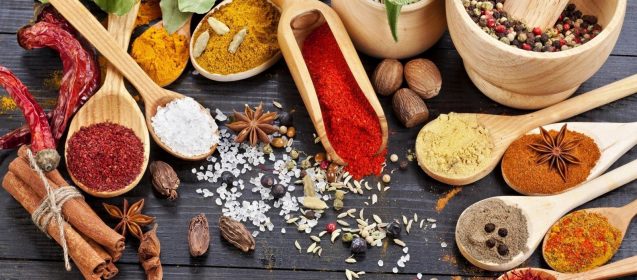
 I love my job. I get to see so many interesting people and learn so much from my clients that it’s amazing and fun. I have one woman who I would rank right up there when it comes to eating healthy. She grows much of her own food and raises herbs, too. She’s a wealth of knowledge when it comes to adding herbs to meals. She even gave me several ideas on how I can create healthier meals with herbs and spices. Her approach was simple. She cut herbs every morning, put them in a glass and when she made supper, just threw in a few with each dish. I took it a step further, since I don’t grow my own, but should. Here are some ways to use herbs and their health benefits.
I love my job. I get to see so many interesting people and learn so much from my clients that it’s amazing and fun. I have one woman who I would rank right up there when it comes to eating healthy. She grows much of her own food and raises herbs, too. She’s a wealth of knowledge when it comes to adding herbs to meals. She even gave me several ideas on how I can create healthier meals with herbs and spices. Her approach was simple. She cut herbs every morning, put them in a glass and when she made supper, just threw in a few with each dish. I took it a step further, since I don’t grow my own, but should. Here are some ways to use herbs and their health benefits.
 Give Yourself a Fitness Summer Surprise Create Healthier Meals with Herbs and SpicesSupplements Are Not the Answer (ATTN: Not for Long Island Guy that sells them)
Give Yourself a Fitness Summer Surprise Create Healthier Meals with Herbs and SpicesSupplements Are Not the Answer (ATTN: Not for Long Island Guy that sells them)
 Everyone seems to be busy here in San Antonio. I hear the excuse that there’s no time to exercise at least three times a day. The good news is that you don’t have to do a long workout to reap rewards. In fact, on those days you’re thoroughly bombed throughout the day, you don’t even have to come to the gym. If you find yourself in that super busy group, whether it’s just for now or continuously, your personal trainer will be happy to help you find ways to supplement your gym time and exercises to do on your own. Here are a few of the alternatives you can do when you’re swamped with work, on vacation or throughout the off day at the gym.
Everyone seems to be busy here in San Antonio. I hear the excuse that there’s no time to exercise at least three times a day. The good news is that you don’t have to do a long workout to reap rewards. In fact, on those days you’re thoroughly bombed throughout the day, you don’t even have to come to the gym. If you find yourself in that super busy group, whether it’s just for now or continuously, your personal trainer will be happy to help you find ways to supplement your gym time and exercises to do on your own. Here are a few of the alternatives you can do when you’re swamped with work, on vacation or throughout the off day at the gym.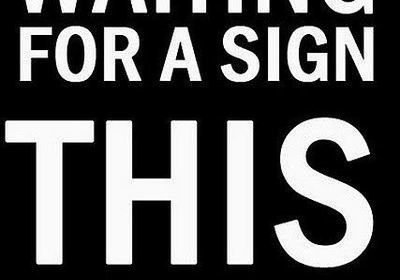
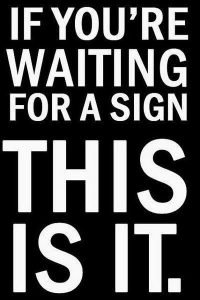 If you’re looking for one magic key to getting fit, you’re going to be very disappointed with this article. There’s no one key to a successful program, but several important keys. The first one to fitness is getting started. No matter who I talk to, most people who have led a sedentary life find they spend a huge amount of time planning and reading about working out before they actually start. So, the very first key is to begin! Don’t wait to find the perfect workout or even wait until you have time to come in for an evaluation with a personal trainer. Start with something simple, like going for a walk after dinner.
If you’re looking for one magic key to getting fit, you’re going to be very disappointed with this article. There’s no one key to a successful program, but several important keys. The first one to fitness is getting started. No matter who I talk to, most people who have led a sedentary life find they spend a huge amount of time planning and reading about working out before they actually start. So, the very first key is to begin! Don’t wait to find the perfect workout or even wait until you have time to come in for an evaluation with a personal trainer. Start with something simple, like going for a walk after dinner.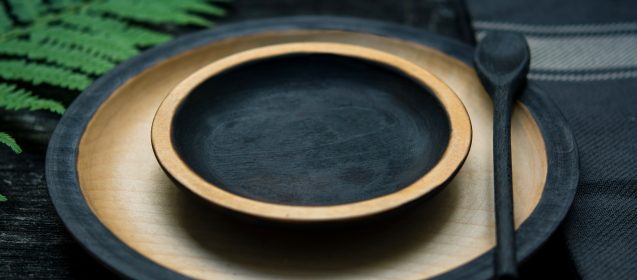
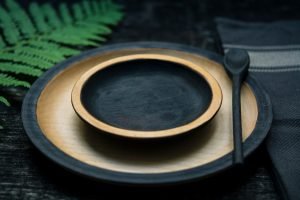 I love to discuss a variety of different ideas on fitness in the blogs. Some I agree with, some I don’t, but explain why and some are interesting concepts that make me stop and think. Intermittent fasting is on the cusp of agreement and interesting for a variety of reasons AND depending how it’s done. Some people do water fasts for days, stating it cleanses their bodies and helps them get back to metabolic normal. Others simply eat all their meals in a eight hour window, ending early one evening and starting later the next day. For instance, the final meal for the day might be at 5 o’clock on Wednesday and the next meal is at 9 am on Thursday. They haven’t really missed a meal, but did actually fast for 16 hours.
I love to discuss a variety of different ideas on fitness in the blogs. Some I agree with, some I don’t, but explain why and some are interesting concepts that make me stop and think. Intermittent fasting is on the cusp of agreement and interesting for a variety of reasons AND depending how it’s done. Some people do water fasts for days, stating it cleanses their bodies and helps them get back to metabolic normal. Others simply eat all their meals in a eight hour window, ending early one evening and starting later the next day. For instance, the final meal for the day might be at 5 o’clock on Wednesday and the next meal is at 9 am on Thursday. They haven’t really missed a meal, but did actually fast for 16 hours.
 I’ve recently heard one of my clients talk about their aunt, touting how mentally sharp she was for her age. It seemed to assume that the older you get, the more you “dumb down.” While you might think it’s true, it’s not the number of years you live that determine your mental sharpness or a guarantee that senility is part of the aging process. Even though genetics also plays an important role, it’s the lifestyle you live that makes a difference whether you’re mentally viable in your senior years. Here are some natural ways to fight mental aging.
I’ve recently heard one of my clients talk about their aunt, touting how mentally sharp she was for her age. It seemed to assume that the older you get, the more you “dumb down.” While you might think it’s true, it’s not the number of years you live that determine your mental sharpness or a guarantee that senility is part of the aging process. Even though genetics also plays an important role, it’s the lifestyle you live that makes a difference whether you’re mentally viable in your senior years. Here are some natural ways to fight mental aging.